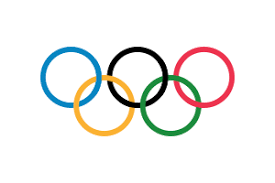
The 5 000m and the 10 000m long-distance running have been as Olympic sporting events since 1912, Stockholm. The athletes have competed in these events 24 times in total in the history of the Olympic Games. Medals and glory have been granted for the most succesful ones, as well there has been most bitter "last moment" defeats in the final straight.
Surprisingly, when looking closely the all-time medal summary in these events in the Olympics by the countries, there is no African or an American nation in the first place, not either the Great Britain, represented by Mo Farah, altough all the honor for him for the splendid results. Finland possess "the number one" in both of these events, while it has been 42 years since the last victorious running event and 38 years since the last medal. The Finnish success in the "half of fame" is based on the superiority of the Finnish long-distance runners in 1910s-1930s and again in the 1970s and early in the 1980s. Reasons for the superiority and the total collapse of the success -reasons for consequences have been searched and studiedfor decades, but there is no clear answer.
According Wikipedia 5 000m top five by the countries in the OlympicGames
- Finland 6 4 2
- Ethiopia 3 2 2
- Great Britain 2 1 3
- Morocco 2 0 2
- Kenya 1 4 4
And 10 000m
- Finland 7 4 4
- Ethiopia 5 4 6
- Great Britain 2 1 2
- Soviet Union/Morocco 2 0 1
https://en.wikipedia.org/wiki/5000_metres_at_the_Olympics
Randomly selected long-distance runners in the Olympic Games:
Hannes Kolehmainen (1889-1966) FIN

In the picture above Hannes Kolehmainen beats his French contestant, Jean Bouin in 5 000m run in Stockholm 1912. In Finland Kolehmainen got a name, 'the man's actions is the reason for the global acknownledgement of Finland'. Known as a vegetarian Kolehmainen, like the rest, Finland was still under the Russian rule in 1912. Kolehmainen won in total 4 gold medals and 1 silver in the Olympics during his career. During his last years of life in the 1960s Kolehmainen was interviewed by the Finnish Broadcasting Company (YLE) and was asked if he was in any contact after Stockholm with his contestant, Bouin. Kolehmainen replied, -Well, I couldn't because he died in the World War I.
Ville Ritola (1896-1982) FIN
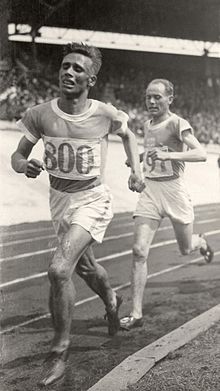
Ritola is "the great unknown". He trained hard, maybe even more than Paavo Nurmi, who is behind Ritola in the picture above. In sports in the 1920s he was the only one, who was capable to challenge Nurmi in the globe and the competition was relentless between even the Finns, 'the flying ones' were Kolehmainen, Nurmi and Ritola. Skinny Ritola trained up to infinity and lived in the U.S. New York, Bronx. He won in single Olympics 6 medals and in total in his career 5 gold medals and 3 silver medals. Even today we say, 'take off like Ritola did'.
Paavo Nurmi (1897-1973) FIN
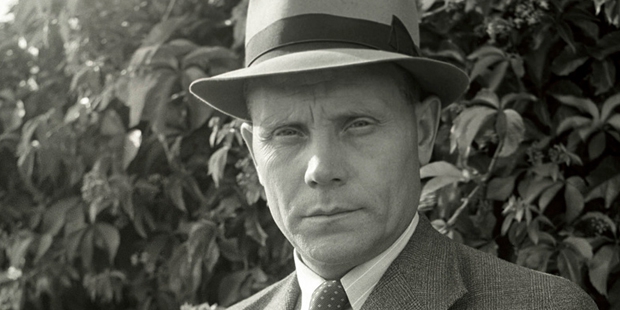
No need for presentations. Paavo nominated long-distance running in the 1920s. Breaking the WR for several times in several distances Nurmi was the "King of the Runners". He is still today the absolute runner in the long-distances. Compared to the American long jumper/sprinter Carl Lewis, Nurmi won 9 gold medals in the Olympics and beating Lewis, 3 silvers. Paavo Nurmi was uncompromising in his trainings but was a capable to learn. Beause the training was even in that time very hard and took time, Nurmi learned the way to train sufficiently to beat his competitors. One of Nurmi's exercises was to run every day from home to work and vice versa. After the II World War Nurmi was a succesfull business man and expanded his activities in to the construction industry. Houses and apartments are still standing in Helsinki, builded by Nurmi's company. It's the character's cold towards the others and Nurmi died finally alone unable to find a comparator in his personal view.
Lasse Viren (1949-) FIN
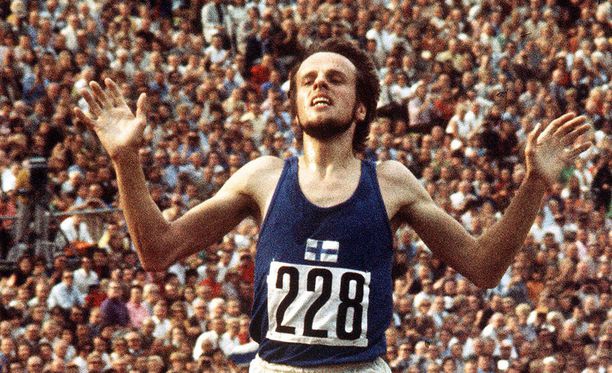
Viren is a former Finnish long-distance runner. Still alive in (2018) today, Viren holds the the Finnish Record in 5 000m run, 13:16,40. Viren is a 4-time Olympic winner and a former congressman of the Finnish parliament. Lasse Viren is the last Finnish long-distance runner to achieve an Olympic gold medal (1976). During his career Viren ran WR's in both distances, in 5 000m and in 10 000m. Lasse Viren represents still "the sporting" attitude, he is fair and rightenous. With the so-called "long-spurt" Viren was able to overcome with his competitors. One thing in Viren is, that after falling down in 1972 Munchen 10 000 run, he got up and didn't give up. He ran the gap and breaking the WR won the gold medal.
Kaarlo Maaninka (1953-) FIN
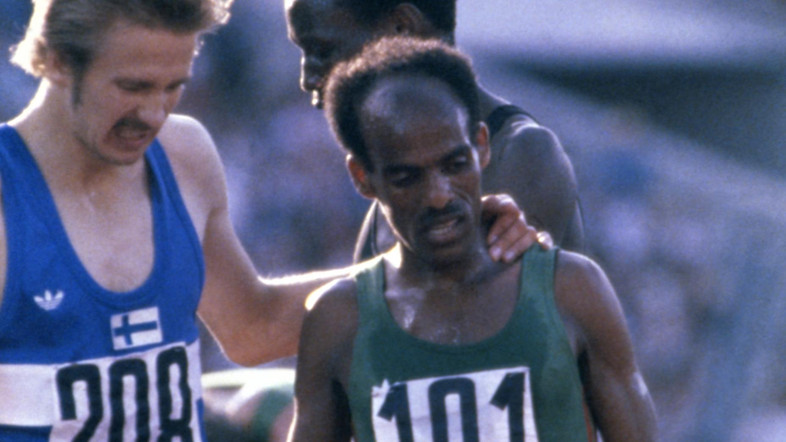
Kaarlo Maaninka is the last Finnish long-distance runner to achieve a medal in the Olympic Games. He won silver in Moscow in 10 000m and in the same bronze medal in 5 000m. Togehther with Viren and Vainio, Maaninka retained his running resources and in the last laps he was able to compete with the Africans. Maaninka achieved two medals in Moscow 1980, silver in 10 000m and bronze in 5 000m. After Moscow 1980 Maaninka pulled back from the publicity and told he was a devout believer of religion.

